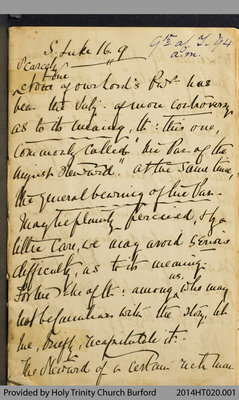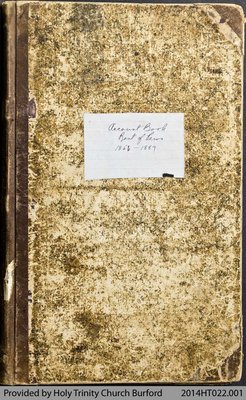

Not much is known about the next three rectors: Reverend Arundel Hill replaced James Padfield and served for three years before resigning in 1878. Hill was replaced by Thomas Watson, who oversaw the foundation of a Sunday School in 1879 and in 1882. D.H. Hinde replaced Watson and had a relatively uneventful tenure other than the controversy surrounding the lack of a church rectory. D.H. Hinde was succeeded by Reverend W. H. Wade in 1886, a man with a reputation for being an excellent public speaker. Attendance at Wade’s sermons increased to the point that the St. John’s Vestry in Cathcart discussed enlarging their building to accommodate more parishioners. Wade’s stay at Holy Trinity was short as he was transferred to Woodstock in 1887 where he gained fame for being the spiritual advisor of Reginald Burchell, the man convicted of the brutal murder of Fred C. Benwell near Eastwood. Wade left five hundred dollars to Holy Trinity Church when he passed away which was used to purchase Chancel chairs.

William Johnson, a man who once served as head of the Ontario Temperance Association, replaced Wade in 1887 and shortly after his arrival the Women’s Auxiliary was formed which still exists to this day. Pew rentals were abolished during Johnson’s tenure as by then the church’s prosperity was enough that they were no longer required. Those who attended the Burford Congregational Church were given permission to worship at Holy Trinity while their church underwent repairs. Reverend Arthur Griffin followed Johnson as rector, arriving in Burford early in 1890. Griffin was in poor health at the time and was replaced in 1892 however during his tenure a new rectory was built. Following Griffin were Reverend William Niebour Duthie (1892-1895) and Reverend John Holmes (1895-1900) who both retired following their tenures.
